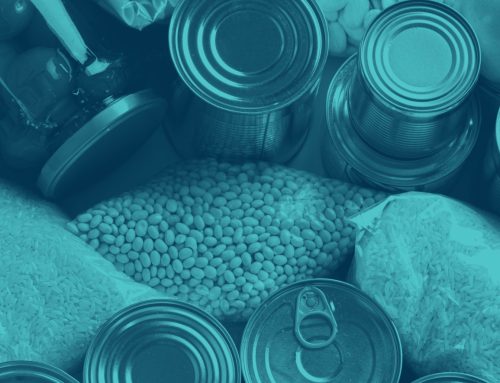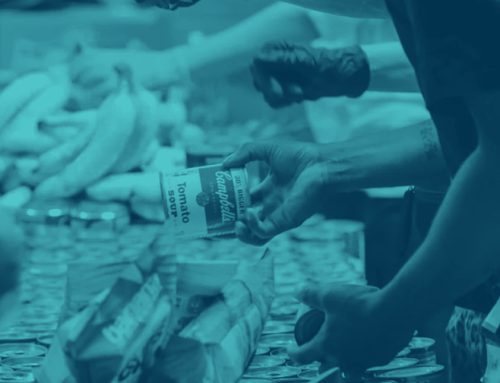Food pantries are a significant part of Canberra’s Food Relief Network, providing free and low-cost groceries to those in need. While each pantry is as unique as the community it supports, what they share is an unwavering dedication to making sure no-one in Canberra goes hungry.
To better understand the role these vital services play in the community, Anglicare and St Paul’s Anglican Church food pantries kindly took the time to answer some frequently asked questions.
St Paul’s: We started operating out of a single storage cupboard! We have since grown in response to community demand and support. The pantry now operates out of two storerooms, a preparation kitchen, two food distribution spaces containing four freezers and a large communal meeting space.
Anglicare: Our Kambah and Gordon pantries came into being as a result of Anglicare partnering with local parishes. In one case, a local pastor had been running a pantry out of his own garage before his parish partnered with us. Our city pantry was added as an additional service within a youth health facility to provide a more holistic service to the young people accessing assistance.
St Paul’s: Everyone! Like all food pantries, St Paul’s is friendly, non-judgmental and welcoming. Clients are not a burden or a nuisance – they deserve to take what they need. Some are long term clients, some come for shorter periods while they get back on their feet.
Anglicare: Visiting a pantry is like calling 000. No one wants to have to use the service, but it’s important to know that it’s there for anyone to use in an emergency.
St Paul’s: Yes. Demand has increased nearly 80% since the beginning of 2022. There has been a marked increase in the number of households where at least one, and sometimes two, members of a household are employed but where cost of living is outstripping earning capacity. They call themselves the ‘in-betweeners’ because they don’t qualify for any support, but they can’t make ends meet.
Anglicare: We too are seeing an increase in the number of families who have one or more incomes. We are also seeing an alarming increase in the number of mothers escaping domestic violence with their young children.
St Paul’s: Consistency of supply is always a challenge. Our supplies come predominantly from Foodbank and Oz Harvest with regular smaller amounts coming from Second Bite (via Canberra City Care).
Anglicare: We do the best we can by seeking out more food rescue opportunities and trying harder than ever to find the best deals when we need to purchase food. We appeal for more donations and our amazing donors respond. We apply for small community grants to support our work. Our amazing volunteers also step-up by putting in more hours.
St Paul’s: Consistency of supply is always a challenge. However, our clients are very understanding of the vagaries of the supply chains and realise there is nothing we or the supply agencies can do. They are very good at adapting to what is available.
Anglicare: It’s a constant concern that demand will continue to climb and we will need to start cutting back on how much assistance we can provide to each family. It is becoming increasingly concerning that, due to limited time, resources and volunteer training, we are not able to help every client with advice and referrals for other challenges they face.
St Paul’s: It’s not just about food – it’s about connection. The best thing I see every week is the patrons of our pantry coming together for friendship and mutual support. This significantly reduces the sense of isolation many would otherwise experience.
Anglicare: A food pantry means that someone can eat when they otherwise wouldn’t have. Apart from providing a boost (no pantry can provide everything a household needs) to peoples’ cupboards and fridges, most pantries become places where people can make social connections and seek other support and advice.
St Paul’s: We need more volunteers, we need more donations and we need more cash. Volunteers are the face of food relief, donations are given directly to those in our community who need it most, and cash is the great enabler. It pays the rent and buys equipment (shelves, fridges freezers, trolleys etc.) and, of course, food.
Anglicare: The most in-demand items at present are the perishable foods (meat, fresh fruit and vegetables, cheese etc.), plus sanitary and incontinence products and the non-perishable foods that have been most hit by inflation (think coffee, cooking oil, honey etc.). If you’ve noticed that you’re paying a lot more for something in your weekly shop, you can bet that our clients have too.
St Paul’s: As little as an hour once per week to sit with a patron and have a cup of coffee, or sweep a floor.
Anglicare: We are grateful for whatever time our volunteers are able to give. For some, it might be four hours per month, for others it might be eight or more hours per week.
Food pantries need your help. Here’s how to take the next step.
Whether you’re able to put a few extra items in the trolley each week, can find a way to donate some dollars or are able to volunteer your time, plan your next step on this website. Be sure to check out the handy interactive map, making it easy to find your local food pantry. Your actions today can help stop hunger in our community tomorrow.


